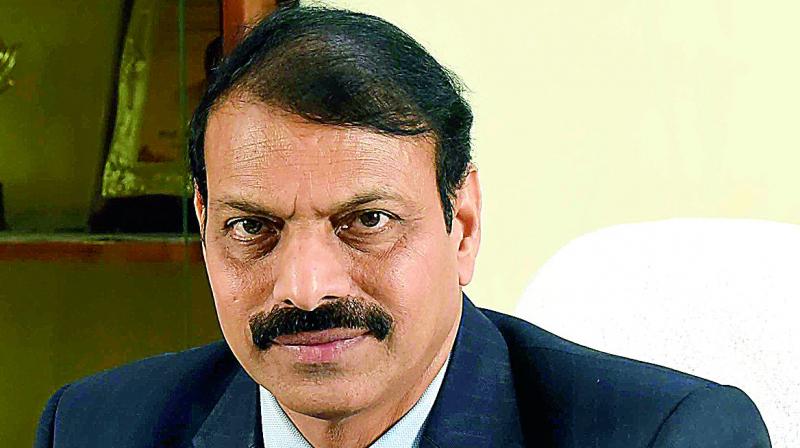Dashavatar over Darwin: AU V-C asked to show evidence
Colleagues say Prof. Rao may have tried for post-retirement posting.;

Visakhapatnam: Andhra University Vice-Chancellor Prof. G. Nageshwara Rao’s claims at the Indian Science Congress that the 10 avatars of Lord Vishnu, or Dashavatar, was a more advanced hypothesis than Charles Darwin’s Theory of Evolution was met with bafflement by scientists, some of whom suspected that it was a strategy to secure a post-retirement sinecure.
Prof Rao also told the Science Congress, now going on in Jalandhar, that the Kauravas were born from stem cell technology and that Lord Vishnu possessed knowledge about guided missiles (Sudarshan Chakra) to chase targets and return to sender; have met with criticism in scientific circles.
Senior researchers said these are only hypotheses and for an academic to make claims on a story does not make sense. They refused to comment on record, saying they would not like to speak on the vice-chancellor’s personal views.
“What is the basis and scientific evidence available from those times to prove these claims,” asked a senior researcher with the Indian Institute of Chemical Technology in Hyderabad on the condition of anonymity. “There is nothing with us presently to talk about the technology then. What is presently with us and how better it can be made should be the discussion.”
A scientist from the Council for Scientific and Industrial Research, the umbrella body of research in the country, said, “For any scientific debate an evidence, trial and results are analysed. Those are the basis. We cannot go by what was a story once and continues to be centuries later.”
Senior Andhra University officials claimed the VC’s term was going to end in another six months. “The VC is trying to pursue a better position in a Central University and thus these claims,” a senior official said on condition of anonymity.
The VC’s team and his students find him to be a secular professor and believe his speech at the scientific meet was a strategic approach to impress some in the political class and land a plum post.
The tales he cited in his speech might have been adopted from research scholar R. Venkataraya Sarma, who submitted 20 such references in his Telugu research paper.
It was left to the Reader at Homi Bhabha Centre for Science Education a part of the Tata Institute of Fundamental Research, Mr Aniket Sule, to contradict Prof. Rao. “Stem cell research, test tube babies, guided missiles, aircraft are very advanced technologies and any civilisation which possessed them, must also possess many simpler technologies that are an absolute must for these advanced ones,” Mr Sule said. “You need electricity, metallurgy, mechanics, propulsion etc. We don’t see any evidence of these.”
Mr Sule also noted that the past few years had seen an increasing trend of some people reinterpreting some poetic verses in old texts to extract random meanings.
“That is exactly the opposite of real research,” Mr Sule said.
Prof Rao was not the only one to make news at the Indian Science Congress. In a presentation, one Dr Kannan Krishnan, who claimed to be an Indian-born Australian national, sought to debunk Albert Einstein’s Theory of Relativity.

